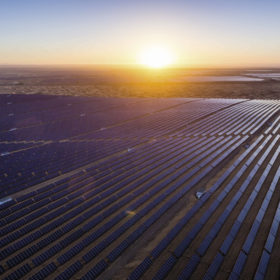
Project delays and price changes due to fluctuating demand are disrupting the Chinese solar market. Researchers who have analyzed the situation claim that the nation's PV industry will be back on track toward grid parity by the end of the year.
The coronavirus halted China’s solar industry for most of the first half of the year, but the government claims it has regained full control of the problem and has sent factories back into operation.
Still, the complete standstill has clearly had an impact on the country’s PV industry. A new research paper looking at the issue – “The influence of COVID-19 on grid parity of China’s photovoltaic industry” – was recently published in Environmental Geochemistry and Health. The researchers come from the field of economics and have applied a range of models to the current market situation.
They point to empirical results suggesting that the pandemic’s impact on the PV industry will trigger a short-term jump in production costs, with an immediate lag of one quarter and a periodic lag of four quarters. While factories were closed for a period of time, project development mostly continued. Therefore, the researchers claim that the pandemic’s impact was much harder for China’s upstream sector. The results will also be felt globally, as China hosts about 80% of the world’s PV production capacity.
The researchers expect that the levelized cost of energy for Chinese PV will return to normal levels by the end of this year, and could even reach grid parity. This assumption is partially based on the observation that China’s capital-intensive economy was affected by the 2003 SARS outbreak for just three months before returning to normal levels.
Delays in project deployment have been the main result of the pandemic. Such delays affected installation rates into the second and third quarter of this year.
Project delays mean that PV equipment manufacturers are competing less over price and quality, as they focus more on who can deliver according to schedule. Price competition also fades in importance due to fluctuating global demand.
The researchers claimed that there has been a 3% jump in investment costs due to the pandemic. They said that the de-stocking of inventories to free up cash flows has also been harmful to companies. Banks should provide loan facilities and PV equipment suppliers should focus on their investments and projects in development, they said.
Lắp đặt điện mặt trời Khải Minh Tech
https://ift.tt/2X7bF6x
0906633505
info.khaiminhtech@gmail.com
80/39 Trần Quang Diệu, Phường 14, Quận 3
Lắp đặt điện mặt trời Khải Minh Tech
https://ift.tt/2ZH4TRU
Không có nhận xét nào:
Đăng nhận xét